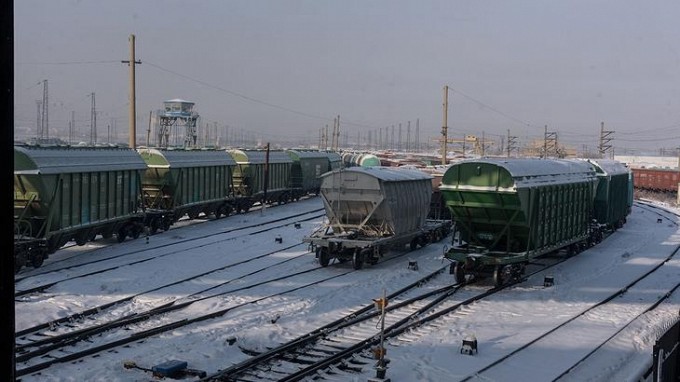
* Sudden rules change leaves thousands of rail cars stranded
* China is a key market for Kazakh oilseeds
* Grain Union fears cargoes may rot, hit exporters with losses
ALMATY, Jan 28 (Reuters) - Hundreds of thousands of tonnes of Kazakh flaxseed, sunflower and wheat have been stuck for months at the Chinese border due to COVID-19 restrictions, and much of it could rot away before the bottleneck is cleared.
China introduced new import regulations in November to try to prevent the further spread of the coronavirus that causes COVID-19, but many grain and seed cargoes ended up stranded at the Dostyk-Alashankou railroad border crossing.
Kazakhstan’s main grains rail shipper Astyk Trans stopped accepting cargoes for China this month, saying it would take nine months to process shipments already held up at the border.
Up to 2,500 railway cars are now stranded at the border, each carrying about 70 tonnes of produce, Astyk Trans said.
Nur-Sultan and Beijing have had numerous discussions on the matter, and another meeting of railroad officials is set for Thursday. But the Kazak Grain Union said there have been no real results so far and that it was pessimistic about progress.
“Due to ... the doubling of the number of abandoned rail cars and the worsening of the situation, and taking into account the upcoming Chinese New Year public holidays ... the Grain Union of Kazakhstan does not expect the situation to be resolved until the summer season,” it said in a statement to Reuters.
China is a minor market for Kazakh wheat, which mostly goes to Central Asian countries, but it has become the main export destination for some oilseeds such as sunflower.
Kazakhstan borders Xinjiang province in northwestern China, far away from Chinese sea ports, giving Kazakh supplies a logistical advantage.
Dostyk-Alashankou is the main crossing for grains. Another crossing at Khorgas mostly serves other types of cargo.
A grains trader said China wanted Kazakhstan to test each bag of grain for the coronavirus that causes COVID-19 before shipping them across the border. The measures have effectively halted all grain and oilseed cargoes, he said.
Kazakhstan exported 201,100 tonnes of sunflower seeds to China last year, nearly 60% of total shipments of the oilseed. It exported 104,300 tonnes of flaxseed, nearly 20% of its total.
The Grain Union said as the weather warms in the spring the quality of the grains and oilseeds stalled at the border will deteriorate at an increasing pace.
“All of it will ultimately lead to ... the loss of produce and colossal losses for Kazakh exporters,” it said.